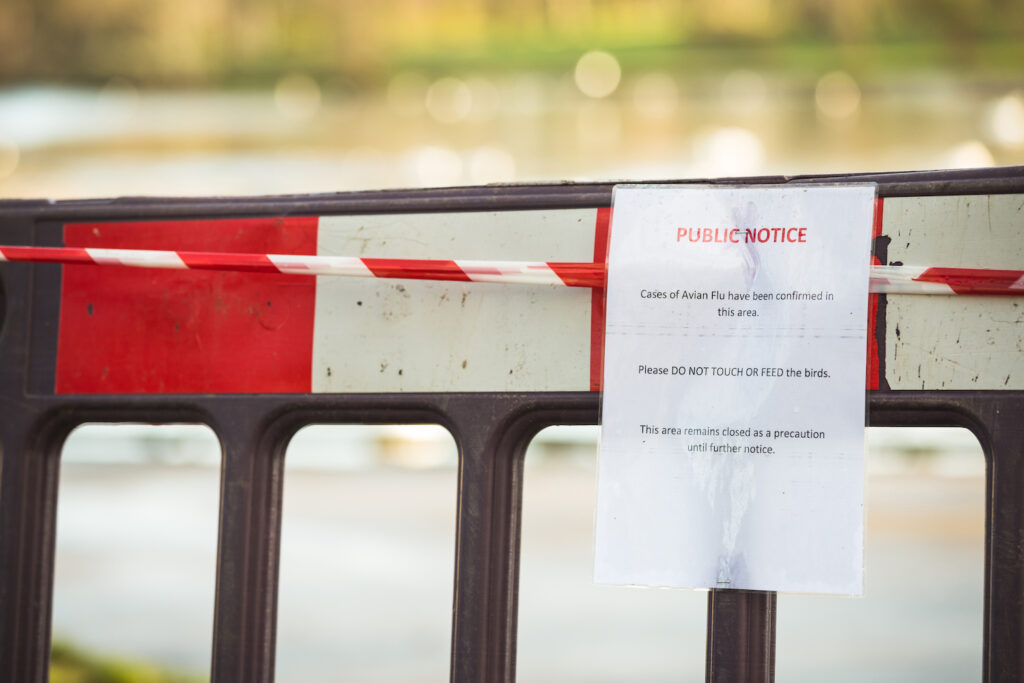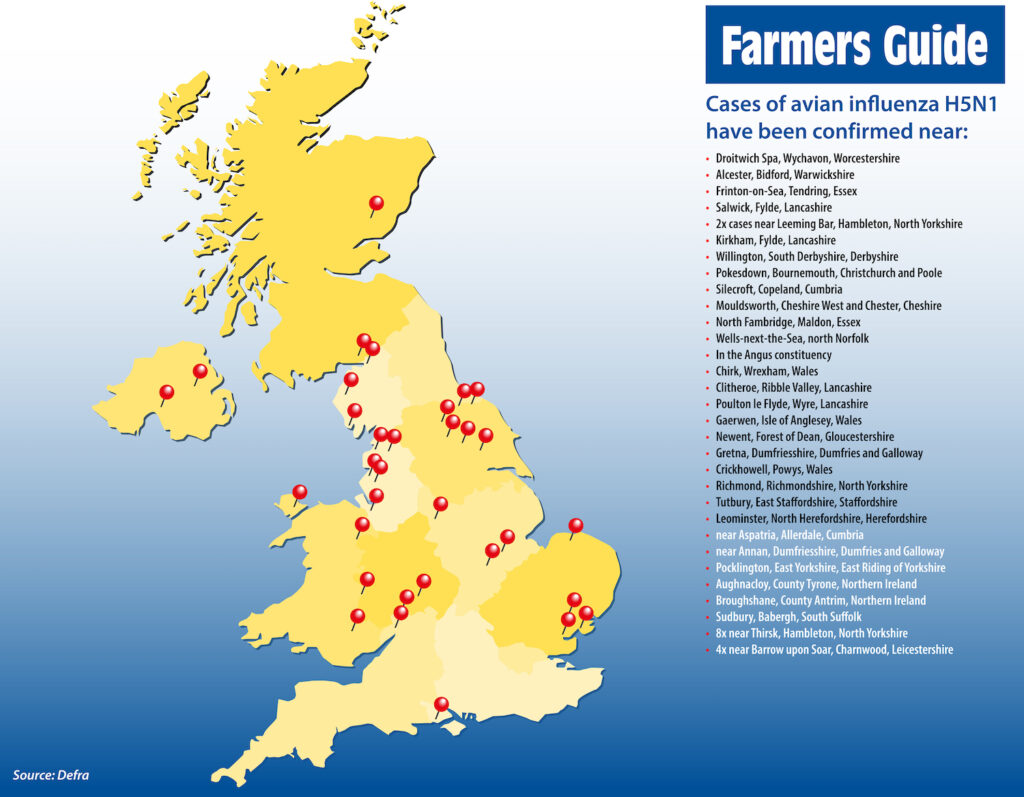UK poultry farms battling “largest ever” avian flu outbreak
10th December 2021
Chief vet “very concerned” as around half a million birds culled and the number of premises infected with H5N1 rises to more than 40.
The level of avian influenza in the UK is said to be “phenomenal”, according to the UK’s chief vet Christine Middlemiss, who told the BBC Radio 4 Today programme she is “very concerned” about the current situation.
There are already 42 affected premises across the UK, compared to 26 last season (November 2020–March 2021). Around 500,000 birds have so far been culled and testing has revealed nearly 300 wild birds are infected at over 80 locations, Dr Middlemiss said.
Commenting on the situation, environment secretary George Eustice told the House of Commons: “Each year the UK faces a seasonal risk of incursion of avian influenza associated with migratory wild birds. While we have that threat each year, I have to say that this year we are seeing the largest ever outbreak in the UK of avian influenza.”
New cases have recently been confirmed at premises near Aspatria, Cumbria; Annan, Dumfries and Galloway; Pocklington, East Yorkshire; and Sudbury, south Suffolk. H5N1 has also been confirmed at an eighth premises near Thirsk, North Yorkshire and a fourth premises near Barrow upon Soar, Leicestershire.
Two cases were also confirmed in Northern Ireland, in Aughnacloy, County Tyrone and Broughshane, County Antrim.
Dr Middlemiss told the Today programme she is “very concerned” about the situation, noting that the number of infected premises is already more than a third higher than the whole of last year put together.
“That’s a really high number for the time of year for anything we’ve experienced before. And that’s because of the high level of infection in migratory wild birds, so it’s really concerning because those birds will stay with us over the winter until early spring and the risk of infection remains.”
An Avian Influenza Prevention Zone is in place requiring all bird keepers to house birds and adhere to strict biosecurity measures, but new detections are continuing to be reported.
Dr Middlemiss added: “It used to be that we’d have a reasonably sized outbreak and then two or three quiet years but that’s not happening. It’s not just for us – we’re seeing this across the whole of Europe.”
BBC environment and rural affairs correspondant Claire Marshall said it is “ominous” that the cause of the rise in cases it not understood. “Scientists all over Europe are worried. It can’t happen that year on year it gets worse, the root has to be found and at the moment no one knows.”
Dr Middlemiss said we need a better understanding of these ongoing infections each year. Asked whether climate change could be playing a part, she said: “We don’t know specifically but it’s certainly one of the thoughts that our experts are having. […]
“It’s quite plausible that with climate change and changes in pathways there’s different mixing going on, but that hasn’t been fully investigated yet.”


